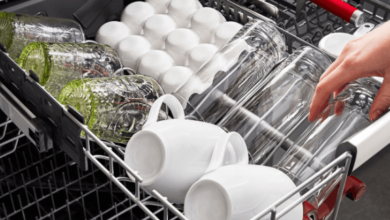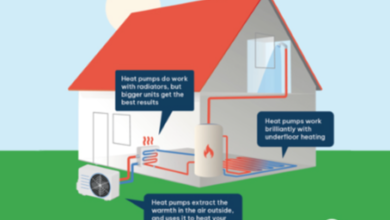The Not-So-Hot Truth: Drawbacks of Tankless Water Heaters

Tankless water heaters have turn out to be increasingly more popular in current years, touted for his or her power performance and infinite deliver of warm water. But before you ditch your trusty tank-fashion heater, it’s critical to recognize the potential drawbacks of tankless water heater. While they boast some astounding advantages, tankless water heaters come with a completely unique set of challenges that won’t be perfect for each household.
In this complete manual, we’re going to delve into the sizeable drawbacks of tankless water heaters, supporting you are making an knowledgeable selection approximately whether they’re the proper healthy to your desires.
Higher Upfront Costs
One of the most important deterrents for lots owners considering tankless water heaters is the sizeable upfront investment. Tankless gadgets themselves are typically two to three instances more high-priced than conventional tank-fashion warmers. On pinnacle of that, set up charges can be significantly better because of the capacity need for:
Upgraded fuel strains or electric wiring: Tankless heaters often require large gasoline lines or thicker electric wiring to handle the multiplied call for for gasoline.
New venting systems: Depending on the chosen version, a new venting gadget is probably essential to nicely expel exhaust fumes.
Water strain changes: Some tankless heaters require higher water stress to feature efficaciously. If your home’s water stress is insufficient, a booster pump is probably wanted, including to the installation price.
While the energy financial savings of a tankless heater can offset these preliminary costs over the years, it can take numerous years to recoup the investment. This extended payback duration won’t be best for absolutely everyone, in particular in case you do not plan on staying in your house long-time period.
Limited Flow Rate
Unlike traditional tank warmers that have a pre-heated reservoir, tankless fashions warmness water on demand. This means they’ve a limited float price, which refers to the amount of hot water they could produce according to minute.
A common tankless heater grants between 3.5 and 10 gallons per minute, which is probably sufficient for a unmarried shower or faucet. However, when you have more than one warm water needs occurring simultaneously, inclusive of strolling the dishwasher and a bath, the glide fee can turn out to be inadequate.
This obstacle can cause:
Fluctuating water temperature: If the demand for warm water exceeds the unit’s glide fee capability, the water temperature would possibly end up lukewarm, particularly in situations wherein warm water is utilized in a couple of locations right now.
Shower frustration: A low glide fee can make showering a less than enjoyable experience, with reduced water stress and inconsistent temperature.
Appliance scheduling: You would possibly want to stagger hot water utilization to make certain good enough waft for each appliance.
Potential for Scalding
Since tankless heaters warmth water right away, there may be no thermostat to alter the output temperature. This can pose a risk of scalding, specially for younger kids or elderly those who may be extra susceptible to burns.
Some tankless fashions come with built-in tempering valves that blend hot and cold water to prevent scalding, but it’s an introduced feature that increases the cost and complexity of the unit.
Maintenance Requirements
While usually considered low-renovation, tankless water heaters do require everyday cleansing and upkeep to make sure most desirable performance and lifespan. This generally entails:
Annual flushing: Hard water deposits can increase within the unit, decreasing its efficiency. Regular flushing with a vinegar answer or a expert descaling carrier is crucial.
Filter replacements: Depending on your water fine, you may want to update sediment filters regularly to prevent clogs and ensure proper water glide.
Vent cleansing: Regular cleaning of the venting machine is important to save you the buildup of flue gasses and ensure safe operation.
These protection wishes upload to the general value of possession and require some level of property owner involvement or professional provider calls.
Not Ideal for All Climates
drawbacks of tankless water heater conflict in very cold climates. The incoming cold water temperature significantly affects the unit’s capacity to deliver hot water quick and correctly. In extreme cold, a tankless heater won’t be able to hold up with the demand for hot water, main to lukewarm showers and longer wait instances. If you stay in a region with constantly freezing temperatures, a tankless water heater won’t be the most realistic answer.
Potential for Power Fluctuations
Gas-powered tankless warmers require a regular gas deliver to feature well. If your location experiences common electricity outages or gas pressure drops, the performance of the heater may be compromised. Electric tankless models are prone to voltage fluctuations, which also can affect their capacity to warmth water successfully. Consider the reliability of your neighborhood utilities before choosing a tankless device.
Limited Availability of Parts and Service
Tankless water heaters aren’t as ubiquitous as conventional
In the previous section, we explored a number of the considerable drawbacks of tankless water heaters, consisting of their excessive upfront prices, limited glide costs, and capability for scalding. Now, let’s delve deeper into a few additional demanding situations you may come upon with those on-demand water heating structures.
Larger Footprint
While normally more compact than conventional tank warmers, some tankless models can still have a exceedingly massive footprint. This can be a problem for house owners with constrained area, especially whilst considering venting wishes and clearances across the unit.
Gas-powered fashions typically require special venting systems (frequently manufactured from PVC or stainless steel) which could add to the general footprint of the set up. Electric models may require devoted electric panels depending on the unit’s wattage. Before opting for a tankless heater, make certain you have got adequate space for the unit itself and the venting machine.
Installation Complexity
Installing a tankless water heater may be a more complicated method as compared to a traditional tank model. Depending to your existing plumbing and fuel strains, huge adjustments might be vital. These may want to encompass:
Upsizing gas lines: As cited earlier, tankless warmers often require large fuel strains to deal with the expanded gas call for. This may involve rerouting present gas strains or installing completely new ones.
Upgrading electrical wiring: Electric tankless models may require thicker electrical wiring to house the excessive amperage draw.
Vent gadget installation: Depending on the chosen version and nearby building codes, a brand new venting machine might be had to effectively expel exhaust fumes.
Water stress adjustments: If your own home’s water stress falls under the minimum requirement for the tankless heater, a booster pump is probably essential.
These adjustments can upload enormous time and price to the installation system. It’s important to discuss with a certified plumber or HVAC technician to assess your existing setup and determine the feasibility and value of installing a tankless heater in your property.
Potential for Noise
While normally quieter than traditional tank heaters with fuel burner ignitions, tankless models can nevertheless generate some noise during operation. The sound comes from the water flowing via the unit and the fuel burner igniting.
The noise stage can range relying on the version and its region in your property. If the tankless heater is installed near a bedroom or lavatory, the noise is probably disruptive, particularly during quiet instances.
Reduced Lifespan in Hard Water Areas
Hard water, rich in minerals like calcium and magnesium, can substantially effect the lifespan and overall performance of a tankless water heater. These minerals can increase within the warmness exchanger, reducing its efficiency and potentially main to untimely failure.
If you stay in an area with hard water, a water softener is relatively advocated to save you mineral buildup and extend the existence of your tankless heater. The extra value and upkeep of a water softener have to be factored into your selection.
Potential for Leaking
Like any plumbing gadget, tankless water warmers have the potential to leak. Leaks can occur due to defective connections, corrosion, or flawed installation. A leak in a tankless heater can be especially unfavourable, as it can purpose water harm to your private home and surrounding areas. Regular renovation and inspections are essential to discover and address potential leaks early on.
Not Ideal for Large Households
Tankless water heaters are exceptional applicable for smaller households with moderate hot water usage. In large families with multiple toilets and common hot water needs, a tankless device would possibly war to preserve up.
The limited flow fee can lead to lukewarm showers, especially if more than one warm water sources are used concurrently (e.G., dishwasher, washing device, and showers). For large families, a traditional tank-fashion heater with a bigger capacity might be a greater realistic solution.
The Final Flush:
Tankless water warmers provide some compelling benefits, specifically in phrases of electricity efficiency and endless hot water deliver. However, as we’ve got explored, they arrive with a completely unique set of drawbacks that need cautious attention earlier than making the switch. The high prematurely prices, constrained go with the flow charge, and potential for scalding won’t be perfect for every home owner.
By cautiously weighing the professionals and cons, and thinking about your particular needs and family length, you can make an knowledgeable decision approximately whether or not a tankless water heater is the proper in shape for you. Consulting with a certified plumber or HVAC technician familiar with tankless structures for your place is especially endorsed to assess your private home’s suitability and suggest the most appropriate gadget on your warm water desires.







